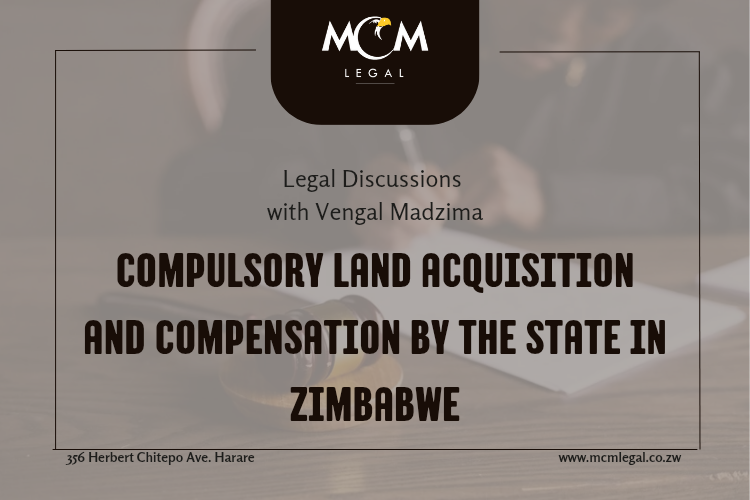NewZimbabwe.com hasinvited Mr Vengai Madzima, the Senior Partner at Madzima Chidyausiku Museta Legal Practitioners (MCM Legal), to discuss with us legal issues that affect Zimbabweans The discussions are of a general nature and those seeking specific legal advice should contact their lawyer Reporter: Welcome back Mr
Madzima, there was a recent landmark judgment in the Zimbabwe Courts on land acquisition and compensation by the government which may affect some acquired land, what was the case about VM: Yes, there was indeed a landmark constitutional judgment delivered on 29thJuly, 2025 in Alistair Michael Fletcher v Minister of Lands, Agriculture, Fisheries, Water and Rural Development and others Well, I will attempt to summarise the facts The land in question is in Umguza on the peripheries of Bulawayo City
It was incorporated into the City of Bulawayo through a statutory instrument issued by the President in 1999 Sometime in 2000, the land was subsequently gazetted for acquisition by the State under the land reform program and caveats were placed on the title deeds to perfect the acquisition The main issue for contention was whether or not the land was capable of acquisition under the land reform program which targeted agricultural land, as the land had become urban land by means of the statutory instrument of 1999, I referred to and various correspondence from the Bulawayo City Council which referred to it and adjacent lands as urban territory Reporter: At face value, it appears simple enough, what where the main areas of contention
VM: It may appear so, however, there was a conflict in the understanding and application of various constitutional provisions Main being the interpretation of S16B (2) of the old constitution which limited the rights of individual to challenge the acquisition of land for agricultural purposes after it has been gazetted and conversely, the rights of the courts to adjudicate on such cases where land was acquired under the land reform process S16B (3) of the same constitution reserved judicial review powers with the courts where expropriation was not in terms of section 16 B(2) as was eventually decided in this case The other constitutional questions which had to be decided included the right to hold, use and not be deprived of property and the right to equal protection and benefit of the law in situations where the application of s16B(2)a was challenged, which section is now s72 of the new constitution.,
Reporter: What was the decision of the court and its reasoning
VM: The Constitutional Court agreed with the decision of the High Court that the land in question was urban land by virtue of it being classified as such by law and the City of Bulawayo, that being so, the State cannot compulsorily acquire urban land without compensation by using the constitutional provisions reserved for land reform acquisitions Compensation in land reform acquisitions is limited to improvements made on land In reaching its decision, the court considered the meaning of agricultural land in terms of the constitution and whether Mr Fletcher’s land can be classified as agricultural land
It also considered its own jurisdiction to hear the matter on the basis of whether the land in question was agricultural or urban land Reporter: What are the key takeaways from this judgment VM: Key takeaways are that the land reform constitutional provisions ousting the authority of the courts to hear and determine acquired land refer only to agricultural land The courts still retain the right to hear cases to confirm whether such acquisition was done in terms of the constitutional provisions and for cases referring to compensation of improvements
The courts also upheld the constitutional provisions relating to right to property and equal access to the courts for all urban land.
Source: Newzimbabwe
